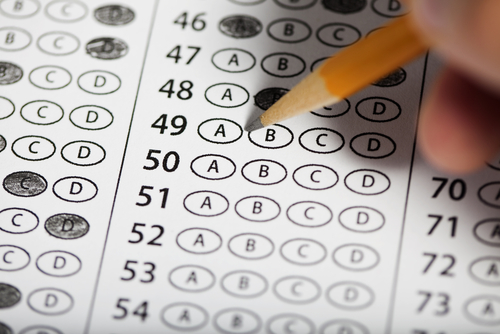Law school applicants will soon have option to take LSAT more frequently

Beginning in September, there will be no restrictions on how many times one can take the Law School Admissions Test during a two-year period.
More information about the LSAT schedule will be released soon, according to the Law School Admissions Council website. Currently, the LSAT is given four times a year, and one can take the test three times over a two-year period, Jeff Thomas, Kaplan Test Prep’s executive director of pre-law programs, told the ABA Journal.
“It behooves the LSAC to try and do things to make the test more accessible to students,” Thomas says of the change.
Law schools have discretion on how they view multiple LSAT scores, he adds. Most use the applicant’s highest score, Thomas says, but that doesn’t mean one should take the LSAT as frequently as possible. The process is stressful and expensive, according to Thomas, and some law schools question why a candidate would take the LSAT multiple times.
“They will have a greater choice, but we still recommend to pick one day, prep for that day and wow the law schools,” he says.
Thomas also suggests the change could be in response to law schools’ interest in also accepting the Graduate Record Examination as an admissions test. The council of the ABA Section of Legal Education and Admissions to the Bar is considering a proposed revision to Standard 503, which deals with admissions, in which it would devise a process to validate non-LSAT entrance exams. The current version of the standard directs law schools that use alternate admissions tests to demonstrate that the exams are valid and reliable.
Harvard Law School recently announced that it plans to accept the GRE as an entrance test, and that exam is already accepted as an entrance test by the James E. Rogers College of Law at the University of Arizona. Notice and comment about the proposed revision to Standard 503 has been requested by the ABA’s Section of Legal Education and Admissions to the Bar, and a hearing (PDF) in scheduled for July 13 in Chicago.
Write a letter to the editor, share a story tip or update, or report an error.


